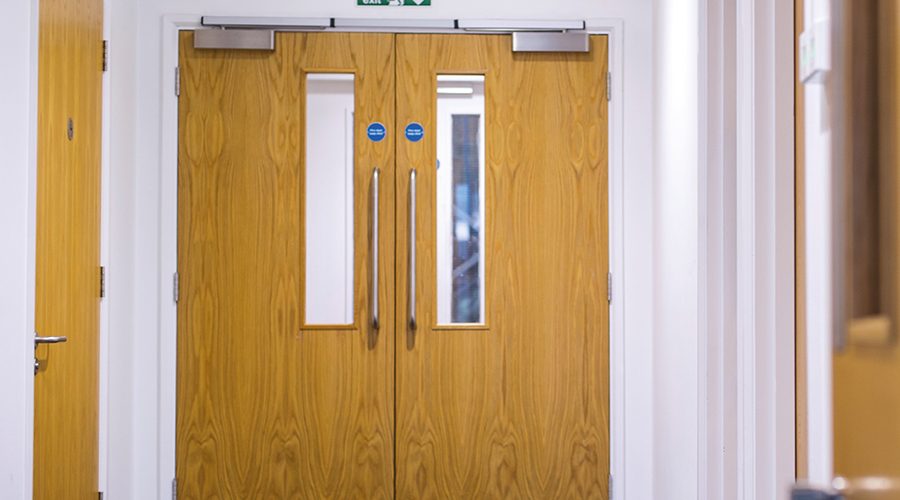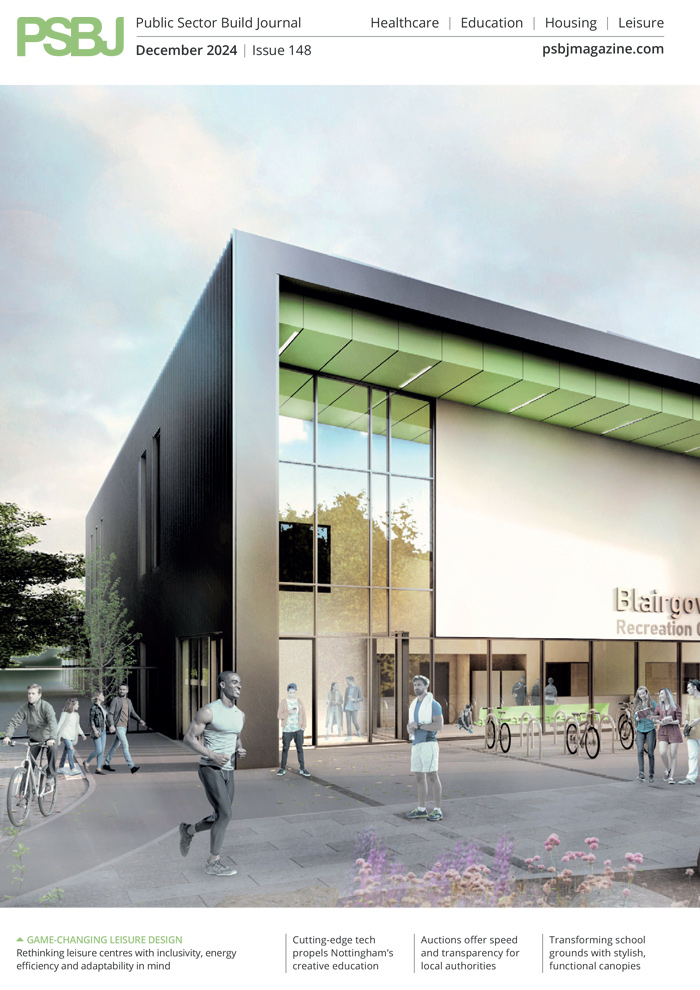Karen Trigg, Business Development Manager at Allegion UK, discusses the importance of addressing fire safety in buildings that house elderly residents.
Allegion UK
The topic of fire safety is one to be taken very seriously by those involved in both the construction and day-to-day running of resident-occupied care homes. Across the country we have seen the number of fire safety audits for group residential buildings rise.
Fire safety issues are particularly important for care homes that house vulnerable residents, with early 2019 reports uncovering a number of facilities that are failing to meet the necessary standards. In order for these facilities to address these issues, it’s important for the industry to find the heart of the problem, beginning with an understanding of the risks involved.
Although a general statement, our experience tells us that a number of privately-owned UK care homes have been converted from older facilities that were originally constructed for a different purpose. When transitioning into a care home, not all buildings have been subject to an upgrade in fire safety procedures and solutions, with many using existing hardware or opting for the most cost-effective solutions. Building owners can also sometimes neglect to ensure that their building meets today’s fire safety regulations due to a lack of knowledge or understanding.
Care homes at risk
The first half of 2019 has been subject to some unfortunate reading surrounding the fire safety of care homes. Following a string of fires in care homes across the capital, the London Fire Brigade recently took action, inspecting 177 care homes in a mass audit, finding more than half were putting residents at risk after failing their inspections. Both public and privately-owned care-home facilities have come under scrutiny, too, with similar news stemming from towns and cities across the UK.
In 2017, the Home Office conducted a report that found numerous trends between fire incidents and the UK’s ageing population, highlighting the safety of an ageing population as an ‘upward pressure’. The report essentially alludes to the fact that group residential buildings are housing older residents at an increased rate, putting pressure on those responsible for accommodating them. With most care-home residents classed as vulnerable, and with all the additional support elements that are needed for these residents, you can see why some building owners are feeling the strain.
Today, the growing number of care-home incidents poses a huge challenge for those responsible for ensuring compliance and reinforces the ‘upward pressure’ that was cited by the Home Office some two years ago.
With age comes responsibility
Care-home fire incidents lead to a huge range of problems. Resident safety, financial and legal consequences, as well as re-housing, are all big issues in themselves, and all are consequences of a significant fire in this type of building. With care-home facilities, resident safety is especially difficult to manage when considering an individual who may be physically compromised or suffering with dementia, for example. Should an incident take place at a care home, facility managers need to have the safety of these occupants front of mind – providing the necessary hardware, solutions and processes that will accommodate a successful and timely evacuation.
With this in mind, as part of a recent study conducted by Allegion UK, results found that almost half of healthcare-based facility managers (47%) do not strongly trust the fire safety solutions they have in place. What’s more, the findings suggest that as the age of a building increases, facility managers trust their fire safety solutions even less. Most think the age of their building will hinder the opportunity to install up-to-date technology and solutions. However, this isn’t normally the case.
For those actively looking to ensure their building meets current fire safety regulations, education is key and it’s important to recognise that taking a one-size-fits-all approach could turn out to be detrimental in the long run. Tailored solutions offer decision makers the option to upgrade their systems while still integrating new hardware around the core structure of the building, no matter its age. Increased education across the industry would go a long way to ensuring that installer and contractors, in particular, are aware of the full range of compliant solutions available – cutting down the time it takes to get a suitable product in place.
Assess and take action
As we’ve seen with high-rise residential buildings, safety and security risks can be nullified, starting with a proper education. By working closely with manufacturers who understand the requirements and challenges faced with providing safe and secure buildings, a solution can be found that allows ease of use and exit in an emergency.
Right now, the pressing issue is ensuring that the UK’s ageing residents are safe and secure in the buildings they reside in.









